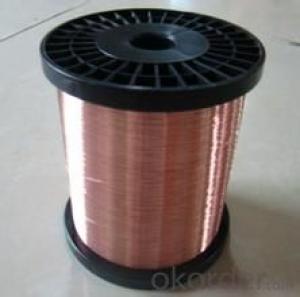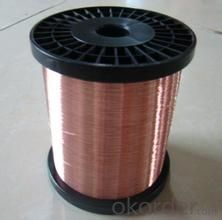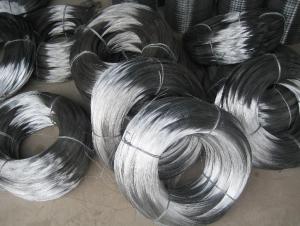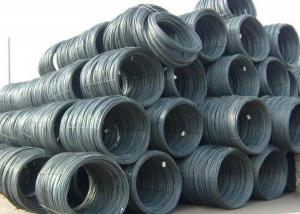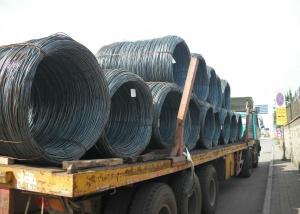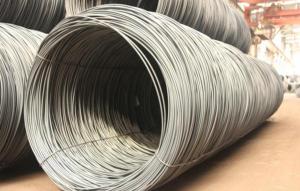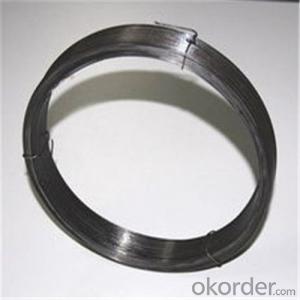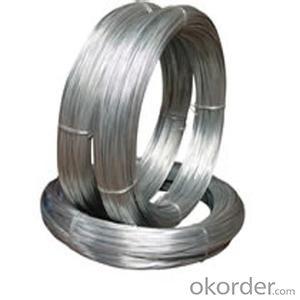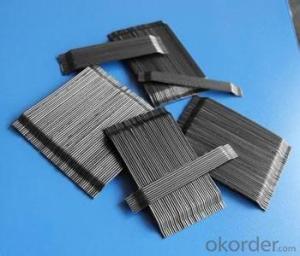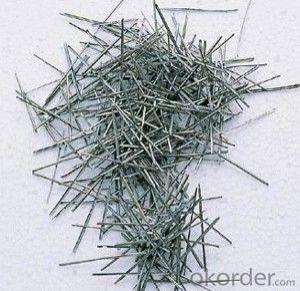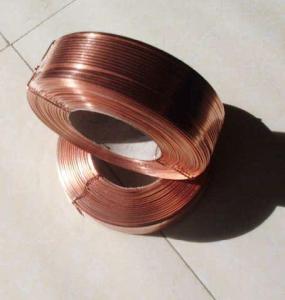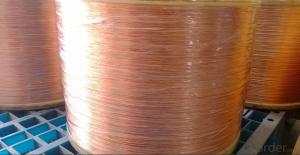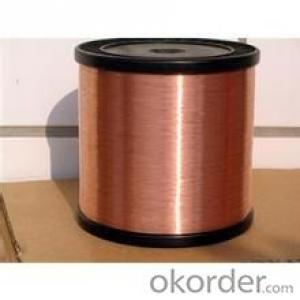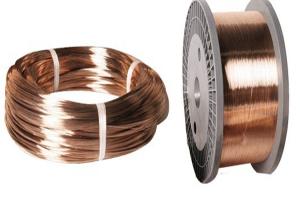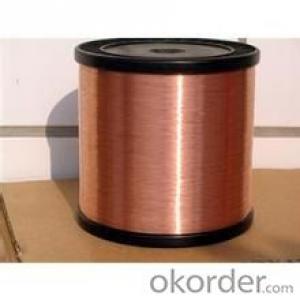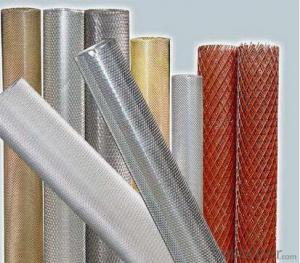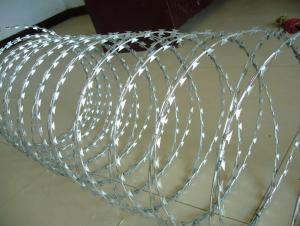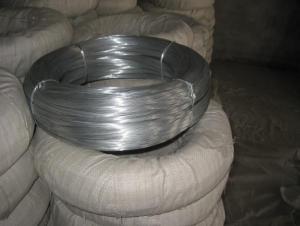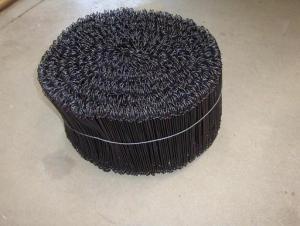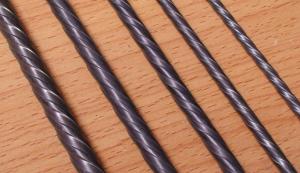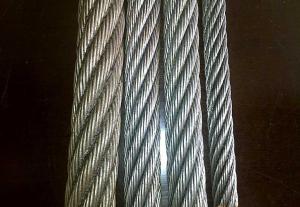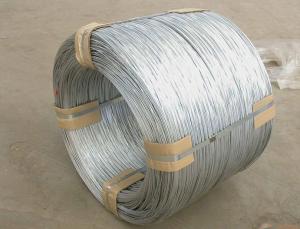Copper Clad Aluminum wire
- Loading Port:
- China Main Port
- Payment Terms:
- TT OR LC
- Min Order Qty:
- -
- Supply Capability:
- -
OKorder Service Pledge
OKorder Financial Service
You Might Also Like
Copper Clad Aluminum is an electrical conductor which has an outer sleeve of copper metallurgically bonded to a solid aluminum core. The combination of these two metals make it uniquely suited to many electrical applications
Standard:
SJ/T 11223-2000 ASTM B 566-93
Feature:
Compared to copper conductors:
Higher Flexibility due to lower elastic modulus 63% material weight reduction due to lower specific gravity of CCA over regular copper
Compared to aluminum conductors:
Better corrosion resistance than aluminum due to copper layer Lower resistance due to high electric conductivity of copper Better Solderability Higher strength than aluminum
Application:
In high frequency signal transmission field, it is applied to: l Standard Material of Conductor in CATV Coaxial Cable; l 50 Ohm Radio Frequency Aerial; l Leaky Cable; l Soft Coaxial Radio Frequency Cable; l Data Cable
In power transmission field, it can be applied to: l Stranded wire; l Power Cable; l Control Cable; l automotive cable; l Building distribution wire; l Busbar; l Radio Frequency shielding;
In special electromagnetic wire, it can be applied to: l Coils in motor and fans, mahjong machine, Loudspeakers l Voice coils (e.g. in Headphone, Headset, ...) l Windings
Manufacture Scope:
0.12MM~5.50MM
Physical property of CCA wire
Characteristics of CCA wire
| |||||||||||||||||||||||||||||||||||||||||||||||||||||||||||||||||||||||||||||||||||||||||||||||||||||||||||||||||||||||||||||||||||||||||||||||||||||||||||||||||||||||||||||||||||||||||||||||||||||||||||||||||||||||||||||||||||||||||||||||||||||||||||||||||||||||||||||||||||||||||||||||||||||||||||||||||||||||||||||||||||||||||||||||||||||||||||||||||||||||||||||||||||||||||||||||||||||||||||||||||||||||||||||||||||||||||||||||||||||||||||||||||||||||||||||||||||||||||||||||||||||||||||||||||||||||||||||||||||||||||||||||||||||||||||||||||||||||||||||||||||||||||||||||||||||||||||||||||||||||||
- Q: has black wires.
- Two black wires in the box would be a hot from the supply and a switched hot to the load. If the timer has only two wires then it should be pretty easy to just connect them. If they are marked line and load then you would have to hook the wire for line to the wire in the box that is always hot from the supply and the other to the wire marked load. If you are still unsure then it really is not a job for you alone, enlist the help of someone with a bit more experience or even an electrician.
- Q: My dog chewed the wiring and i dont know how to re-connect
- Lets see, if your dog chewed the wires, he probably did it right at the valves. Here's what you do (depending on how many valves you have) 1. Each valve solenoid has 2 wires coming out of it. Grab one (of the 2- it doesn't matter which) wire from each valve and twist them together. Call this the COMMON wire (usually white). 2. Go to the clock/timer/controller and look to see where the wires are connected. Check to see which color wire is deginated as the COMMON wire (or doesn't have a station number designation) 3. Once you find out which wie is the common, go back to the valves and twist this wire onto your BUNDLE with a wire nut. 4. Connect the remaining wires at each valve to any corresponding wire (on the other end). Make sure that you eventually solidify these connections with waterproof wire connectors. 5. Check the stations at the clock, running individual stations and making sure the correct run-times correspond to the valve assignments- adjust or flip wires at the clock instead of switching wires at the valves.
- Q: I hooked up my Klipsch floor speakers with the old-cheapy wire and then bought, I think it was monster cable, and bi wired it. Big sound improvement. But I've heard pros and cons on monster cable. I have three zones to wire in my house. If I bi wire the other two zones what's the best wire to get? You can spend a small fortune on wire. If I bi wire, zone 2 would be 30 feet x 4 and zone 3 50 feet x 4. I read that if one of the wires is silver it's better as silver's the best conductor. This I knew already. But, when I bought the wire that I did, it didn't state anywhere on the label that it contained silver and I think that would be a drawing point. In fact, I didn't see any wire at that store that said it was part silver and it wasn't Walmart but a major electronics store. I did see some that had silver colored strains but so is steel and aluminum. I also read on another forum that CAT 5 wire works well for bi wiring? Thoughts? Opinion?
- I personally would not use CAT 5 cables...these are designed for data transmission....not audio transmission. High Frequency audio signals travel around the outer edge of your cables and low frequencies tend to travel through the center. So you truly need multiple conductor cables...and the thicker the better.
- Q: 2 wires and ground to oven with 3 wires and ground
- You need to replace the cable with a three wire plus ground.
- Q: my dogs have chewed my central air contactor wire.my ac will not cut on. does anyone knows how to replace them and where to buy replacement wires locally( i live in Dallas TX.) i would like to do it myself instead of spending a lot of money.
- You shouldn't need to replace the wires, only splice them back together, color to like color. If you decide to replace them, they are 18 gauge. Depending on the unit that you have, there may be 2, 3, 5, 7, or 9 wires. Install the wire in 3/8 flex to prevent a repeat. Lowes and Home Depot will sell you the wire by the lenght you need. Ask for jacketed wire.
- Q: What are the effects on an amp when you use power/ground wires that are too small? I bought a set of 8 guage wires off of OKorder, and it stated they can handle up to 1000W. I'm using a Kenwood KAC-9103D amp, 500x1 @ 4ohms, 900x1 @ 2ohms, and 900+ x1 @1ohm (1800 W max power). My subs are Kicker VR8, dual voice coil, 4ohms, wired in parallel. Was it a mistake to go with 8 guage wiring? Should have I gone with 4 guage?
- Should of definitely went with the 4 gauge. The effects are that the AMP will overheat, and will be underpowered.
- Q: A wire is 1.5 m long and has a diameter of 1.5 mm. The stretch modulus of the wire is 6.2 x 10^10 N/m^2. If a force of 400 N is applied to end of the wire then the increase in length of the wire is???please help, thanks
- The stretching of wire by longitudinal force: If F force applied across the crosectional area A of wire of radius r and lenght L then the wire elaogates in the dirextion of force Stress P = F / A A = pi* r^2 = (1.5/2)*10^-3 = 7.5 *10^-4 m^2 strain produced = dL / L = increase in length / original L Young's modulus or elastic (stretch) modulus for the maretial, within elastic limits, Y = stress/strain strain = stress / Y dL = F * L / A * Y = F * L / pi (r^2) * Y dL = 400* 1.5 / 3.14 (7.5 *10^-4)^2 * 6.2*10^10) meter dL = 0.005479 * meter dL = 5.479 millimeters increase in length
- Q: i need 175ft of 110 wire how much does it cost?
- depends one the guage and copper prices fluctuate daily
- Q: If you were to hot wire your car and didn't have the manual to consult the color code, what would be some ways to identify which wires are {power} and {starter}? If you were to cut all wire pairs and attempt different combinations, would that result in imminent failure? (knowing the different pairs correspond to different key positions)
- Ok, so far you people have all proved to be completely useless and immature idiots. You people who comment just to comment have to realize that your opinion, nor your life, matters in this world and should express it by publicly burying yourself alive or jumping off a tall building or something simply for the amusement of others. You are dirt, you are worthless, you are nothing; no excuses.
- Q: 2.4) A wire has a resistance of 19.2 . It is melted down, and from the same volume of metal a new wire is made that is 5 times longer than the original wire. What is the resistance of the new wire?
- the quantity of twine ought to stay the comparable that's A L, so once you double L you decrease A in 0.5. Resistance = Rho L/A, so the recent twine has 4 cases the resistance or 20 ohms.
Send your message to us
Copper Clad Aluminum wire
- Loading Port:
- China Main Port
- Payment Terms:
- TT OR LC
- Min Order Qty:
- -
- Supply Capability:
- -
OKorder Service Pledge
OKorder Financial Service
Similar products
Hot products
Hot Searches
Related keywords
